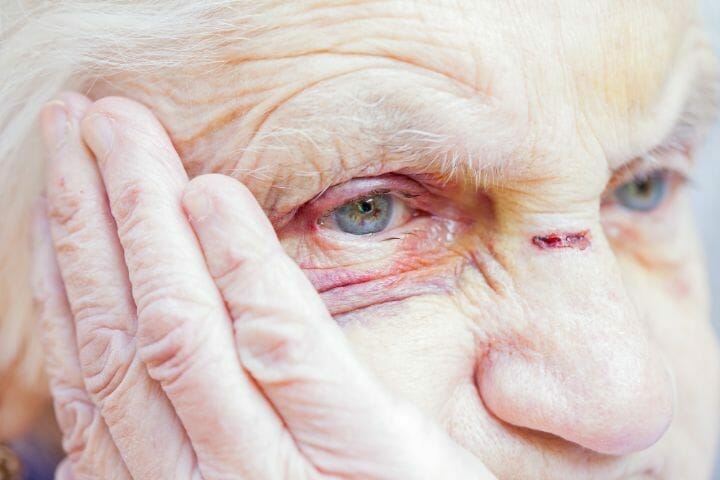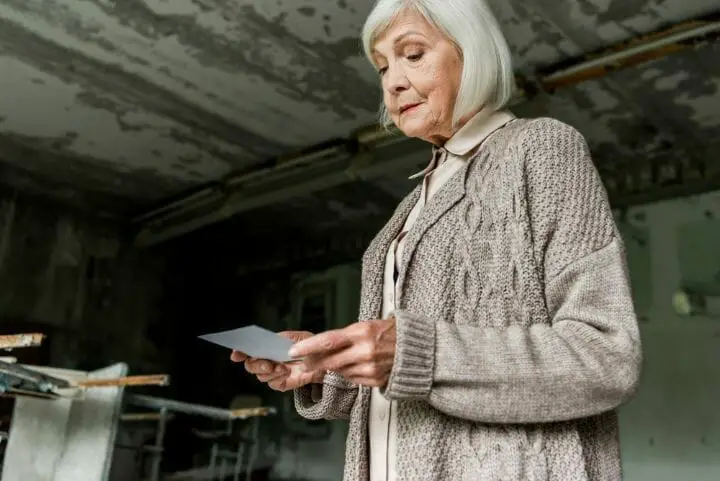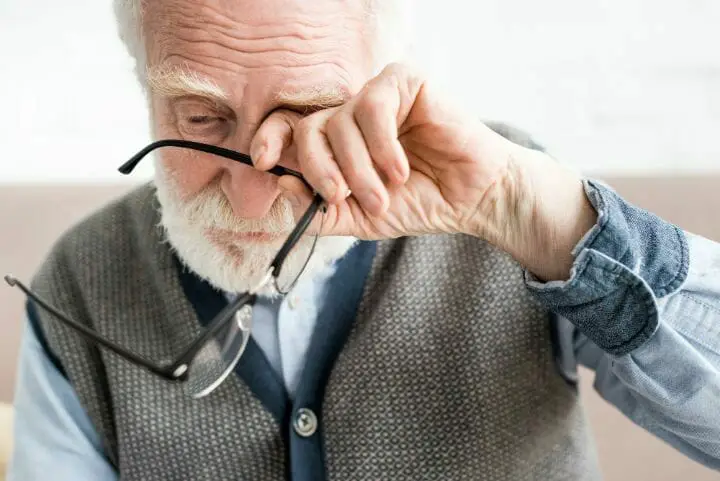Contents
What Counts As Abandonment?
When the person/group of people responsible for the of an deserts or otherwise fails to provide the necessary to the , it is a case of abandonment.
The caregivers have in short, failed to provide the individual, the necessary goods and services required to avoid the risk of physical or mental harm or illness.
It is a form of elderly , which refers to the act of inflicting or otherwise knowingly or recklessly causing harm, anguish, or pain to another person.
Abandoning an would qualify as by under state statutes.
is a serious problem in our society. Many people every year suffer from the consequences of this issue.
Whether it’s , irresponsibility, or malicious action, it’s an issue that has to be addressed, as it can threaten any who has the responsibility of caring for a senior.
Understand why abandonment is an issue, how you can avoid it, and how a solid estate planning attorney can be of help in this area.
Effects of Abandoning an
To say the least, the effects of abandonment can be devastating. Especially in the case of an with , Alzheimer’s, or another cognitive impairment, he/she could forget their own identity, where they belong, or even what they need to do, to seek treatment for their condition.
Even if they aren’t suffering from a cognitive issue, the effects of abandonment can lead them to depression, illness, and even death. It’s every bit as bad as any other form of or .
You may also like Problems With Home Care Agencies
Exploring the Case of Elderly Abuse
What are the types of ?
There are seven main types of senior . Some, such as or , may be more difficult to notice or prove than .
:
is any use of physical force that may result in bodily harm like injury, physical pain, or impairment.
includes hitting, kicking, shaking, burning, and other violent acts. More commonly overlooked manifestations of include forced restraints, starvation or force-feeding, and inappropriate administration of drugs.
It is important that you report to the concerned authorities if you spot any of the following signs:
- Bruises on the face or body; most victims have bruise marks on their limbs and extremities.
- Sprains, broken bones, or any serious injury which seems to have happened without the adult falling or stumbling over something.
- Marks on skin suggesting signs of being restrained, like strap or rope marks
- Sudden changes in behavior; especially a sudden unnatural change in response to physical touch.
- Reports of from the
You may also like How to Report Unsafe Living Conditions of Elderly
This includes any type of nonconsensual sexual action toward a senior. It encompasses a range of actions from rape to inappropriate touching, forced nudity, or forced inappropriate photography. Senior victims with significant cognitive impairment cannot give sexual consent and many a time, these acts go unreported.
According to multiple sources, is the most common form of an or grandparent has to deal with. It inflicts despair, pain, and ill health to an through verbal or nonverbal acts.
includes insults, threats, verbal , and harassment. It could be from a member, , or anyone in contact with the individual. This could result in the elderly parent or elderly relative falling into isolation, loneliness, and a victim of gaslighting. If it happens inside the home, it falls under the category of .
When an individual is exploited financially, it means that an abuser is stealing steals or mishandling a senior’s money or possessions with a selfish motive.
It can include cashing checks without the knowledge or permission of the adult, forging signatures, coercion, and gross misuse of guardianship or power of attorney.
Sadly, most cases of come from members of the same . Strangers, as well as caregivers in long-term care facilities, can also be culprits in .
You may also like How to Deal with a Difficult Elderly Parent
When a member or refuses to provide a dependent senior with necessities like food and water, shelter, decent hygiene, and access to medication, the situation is a case of .
Sometimes, a member may even to pay for appropriate parent that is required for an or .
Abandonment
Finally, abandonment is a more extreme version of who’s left in charge of an elderly person deserts them in a home, hospital, or a public place.
Some elderly parents often display a lack of interest in caring for their own well-being and neglect to eat or drink at regular intervals or care about basic hygiene. This is most common in seniors with mental illness or cognitive decline and is termed self-neglect by most onlookers.
If you have aging parents or relatives, please note that self- doesn’t include a mentally stable senior’s voluntary decision to commit actions that threaten their own life or safety
Who Commits E A?
The American Psychological Association cites that the majority of senior victims are female, whereas the majority of the perpetrators are male.
Adult children are the most common perpetrators of , followed by spouses and other members. Elderly people are also prone to emotional and physical abuse in hospitals, long-term homes, and nursing homes, despite strict regulations.
Older adults — especially those with — can experience severe behavioral changes as they age. could come from a partner who never had violent tendencies, or it could even be self-inflicted.
What can you do if you suspect that your family member is abusive to the elderly member in your home?
If you suspect your or another member is abusing an loved one, bring up the topic calmly with the senior; abstain from making a direct accusation.
Such direct accusations could be detrimental- wait patiently and the elderly will be more likely to share their experiences if they don’t feel like they’re condemning someone they about.
You may also like How to Help an Elderly Parent Who Refuses Help
Factors that Contribute to Increased Risk of E A
These health conditions and social circumstances increase the risk of senior in the system and for an or at home.
A decline in cognitive function
Seniors with mental health problems or mental disorders have a higher risk of abuse, and most often, family members or the primary caregiver are the culprits behind the abuse.
Increased physical dependency
When a senior adult is dependant on caregivers or members for everyday tasks, there is a rise in ill-feeling towards the dependant individual, and they are more susceptible to .
Inability to manage money independently can lead to , while constant proximity increases the likelihood of .
You may also like Caring for Elderly Parents Who Were Abusive
Social circle and environment
Seniors who don’t have a circle of friends are more likely to experience undetected . This problem affects widows, seniors without , and adults aging at home alone.
We see that many elderly people with strained family relationships are also at higher risk of abuse from family members.
The family’s economic status
Seniors from lower-income backgrounds are at significantly greater risk of , according to many reports. The reason is that e people without adequate funds and assets often have to rely on their younger family members, who may not be in the financial position to support and provide for old age requirements.
Sometimes, when a senior adult relies on lower-quality housing or
Race
People of color are more likely to experience from non-/professional caregivers in the U.S. than white people are. This is primarily due to geographical location and economic disparity, which lead to a higher likelihood of lower-quality .
You may also like How to Cope With Caring for Both Young Children and Elderly Parents
Recognizing the Signs of E A
Seniors are prone to falls and accidents, as well as changing behaviors due to medication or cognitive decline. These signs don’t necessarily indicate , but they are red flags that should be carefully recorded.
- Bruises, cuts, abrasions, burns, and other physical signs of trauma
- Signs of withdrawal, confusion, or depression
- Lack of interest in basic hygiene
- A steep and sudden change in the senior’s bank balance and assets
- Unexplained credit card statements
- Bedsores
- Sudden weight loss/loss of appetite
- Negative reaction to physical contact
- Injured private areas
- Unwillingness to speak
If you notice any of these signs, take detailed notes or photographs of injured areas. Also, we suggest that you record any unusual behaviors you witness or any testimony you can get from the senior.
Your records could prove extremely useful in reporting and prosecuting an abuser to keep your loved one safe.
Do let us know if you have dealt with a case of elderly abuse and how you resolved it!




